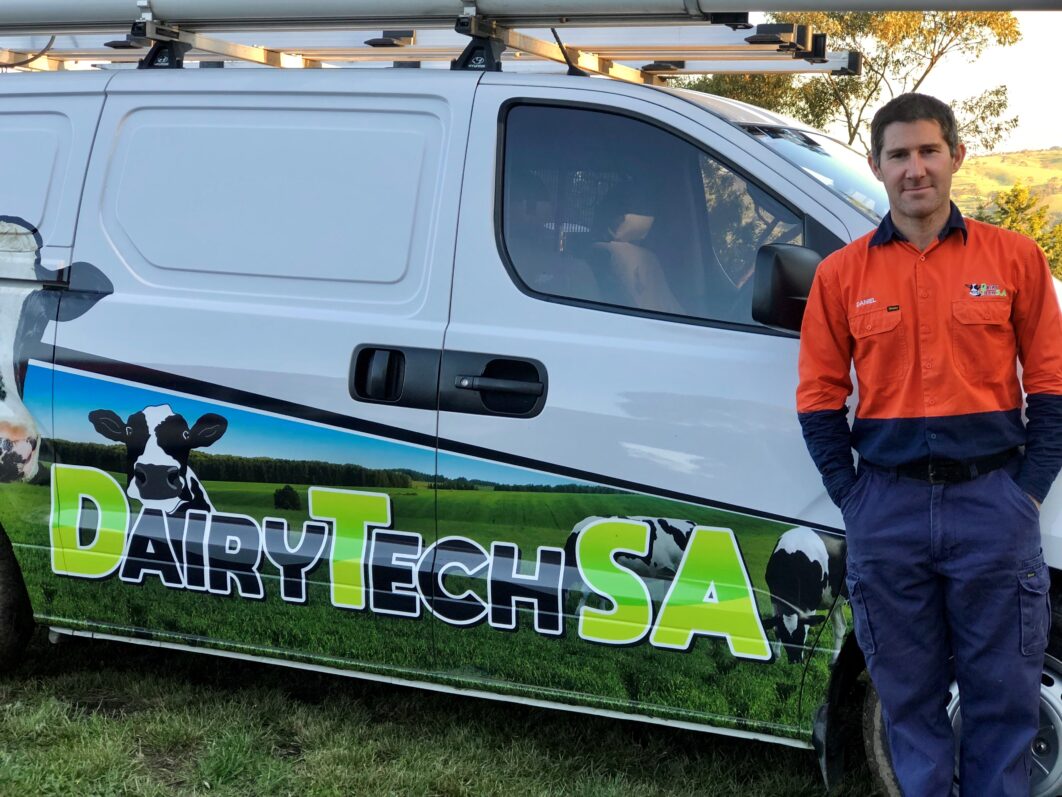Daniel Ciavatta, from Dairy Tech SA, has serviced hundreds of dairy machines in his career. He’s happy there is now a nationally recognised course for machine testing technicians, which he says will lift quality standards across the industry.
“I think having a consistent national course for all dairy machine testers is a no brainer. It will set a service standard which will help improve machinery operation and milking results,” Daniel said.
“Processors are asking for milking machine test results more and more now – the increase in the number of processors, both big and boutique, looking for specific quality attributes, is helping to drive standards in the industry.”
Daniel said, in his experience, there was a mixed perception about the need for machine testing in the dairy industry.
“Some farmers want it done every year to find and prevent problems, while others only want work done when something goes wrong,” he said.
“Some farmers, when they’ve had issues with their machines and I ask them when their last test was, say, ‘what’s a machine test’. So there’s a range of understanding out there.”
Daniel said typical issues with dairy machines included broken pulsators, hoses and teat cup shells.
“Pulsators are doing the work of milking the cow, so they are critical. The pulsator has to meet a required standard of pulsation to prevent damage to the cows which causes issues such as mastitis,” Daniel said.
“In addition, out of the four teat cup shells, one or two might not be working properly. Then each cow that comes through might be only getting half milked, which is a problem.
“When you get your machine tested, the testing unit gives you figures on the machine’s operations. You basically get a tick for each unit that’s working properly and a cross if there’s a problem. Some problems are hard to detect and the machine testing picks these things up.”

Daniel said he generally found a problem with every machine tested. “Quite often they are little things that I can fix then and there, like a damaged rubber hose,” he said.
“So getting milking machines tested every year and highlighting small problems that can easily be fixed can prevent bigger breakdowns later, which could lead to high bacterial counts, poor quality and an impact on the farmer’s milk cheque.
“I think of dairy machine testing like a car service – you service your car and replace parts at regular intervals to prevent unexpected breakdowns. Dairy machines are the same. For example, most pulsators have kits in them which need to be replaced every two to four years. If you push the kits beyond their natural lifespan, you can expect a breakdown at 4am on a Sunday morning.”
Daniel plans to complete the new Milking Machine Testing course later this year.